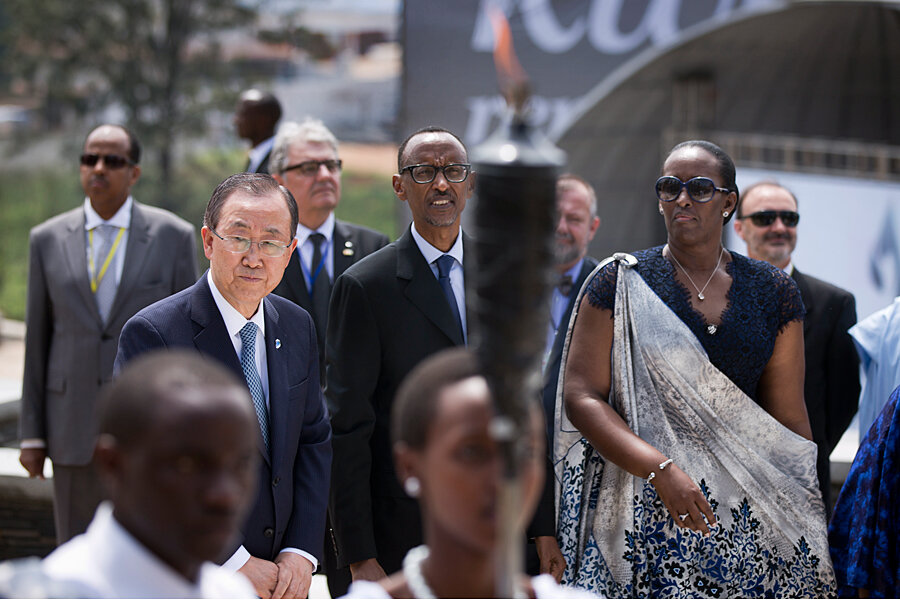The mad, mad debate over Rwanda -- 20 years after the genocide
Loading...
A version of this post appeared on An Africanist Perspective. The views expressed are the author's own.
Caution: This is not an apology for President Kagame and his autocratic tendencies that have resulted in carnage and death in the DRC, Rwanda and elsewhere.
At a conference last year a US State Department official told a group of us that Rwanda was so polarizing that even at the consulate in Nairobi the DRC crowd did not get along well with the Rwanda crowd.
It is not surprising why that might have been the case, or why the present analysis on the commemoration of the 20th anniversary of the 1994 genocide remains polarized.
If one just looks at the improvements made in advancing human welfare since President Paul Kagame and the RPF took power it is hard not to arrive at the conclusion that ordinary Rwandese are unambiguously better off.
The country is the least corrupt in the region and has also been consistently ranked top in the ease of doing business.
But there is also the side of the Kigali government that most reasonable people love to hate: the murderous meddling in the DRC and the oppression and occasional murder of dissidents at home and abroad.
Those who admire what President Kagame has done tend to emphasize the former, while his critics tend to emphasize his autocratic tendencies which have made Rwanda the least democratic country in East Africa. Many wonder if the post-1994 achievements are sustainable enough to outlast President Kagame’s rule.
So is Mr. Kagame a state-builder or your run of the mill autocrat whose achievements will vanish as soon as he relinquishes power?
In my view, I think that Rwanda is the best success story of state-building in Africa in the last 20 years. I also think that this (state-building) should be the paramount consideration for those who care about the Rwandese people and want to help them achieve greater freedoms.
The fundamental problem in states like CAR, Sierra Leone or Liberia has never been the insufficiency of democracy. Rather, it has been the problem of statelessness.
The contrast between Rwanda and Burundi is instructive. See here and here. Despite the latter being the second most democratic state in the region, it has consistently performed the worst on nearly all human development indicators. Part of the reason for this is that Burundi remains a classic papier mache state confined to Bujumbura and its environs.
Maybe I am too risk averse. But I am scared stiff of anything that could lead to a recurrence of the horrors of the early 1990s -- stretching from the Mano River region to the Horn. As a result I am always skeptical of activism that takes state capacity (including coercive capacity) for granted.
With this in mind, the fight against autocratic rule in Rwanda should not come at the expense of the state-building achievements of the last 20 years.
The international community and those who genuinely care about Rwandese people should be careful not to turn Rwanda into “democratic” Burundi in the name of democracy promotion.
Interventions will have to be smart enough to push Kagame and the ruling elite in the right direction, but without gutting the foundations of political order in Rwanda.
Absent a strong state (even after Kagame), the security dilemmas that occasioned the 1994 “problem from hell” would ineluctably resurface.
Lastly, I think the level of discourse in the “Rwanda Debate” could be enhanced by the extension of the privilege of nuance to the case.
For example, if all we focused on were drones killing entire families at weddings in Yemen or the horror that is the South Side of Chicago we would probably get mad enough to ask for regime change in Washington.
But we don’t: people tolerate the “complications and nuance of American politics.”
The same applies to less developed countries. Politics is complicated, everywhere. And those who approach it with priors of good-or-bad dichotomies are bound to arrive at the wrong conclusions. One need not be a Kagame apologist to realize the need for a delicate balance in attempts to effect political change in Kigali.
Please notice that this is neither an apology nor an endorsement of autocracy in Rwanda. It is a word of caution regarding the choices outsiders make to accelerate political change in Rwanda.
Tyranny is not the panacea to underdevelopment. But neither is stateless democracy.
For background reading on the 1994 genocide in Rwanda see Samantha Power’sProblems From Hell; Mahmood Mamdani’s When Victims Become Killers; and Philip Gourevitch’s We Wish to Inform You That Tomorrow We Will be Killed With Our Families.







